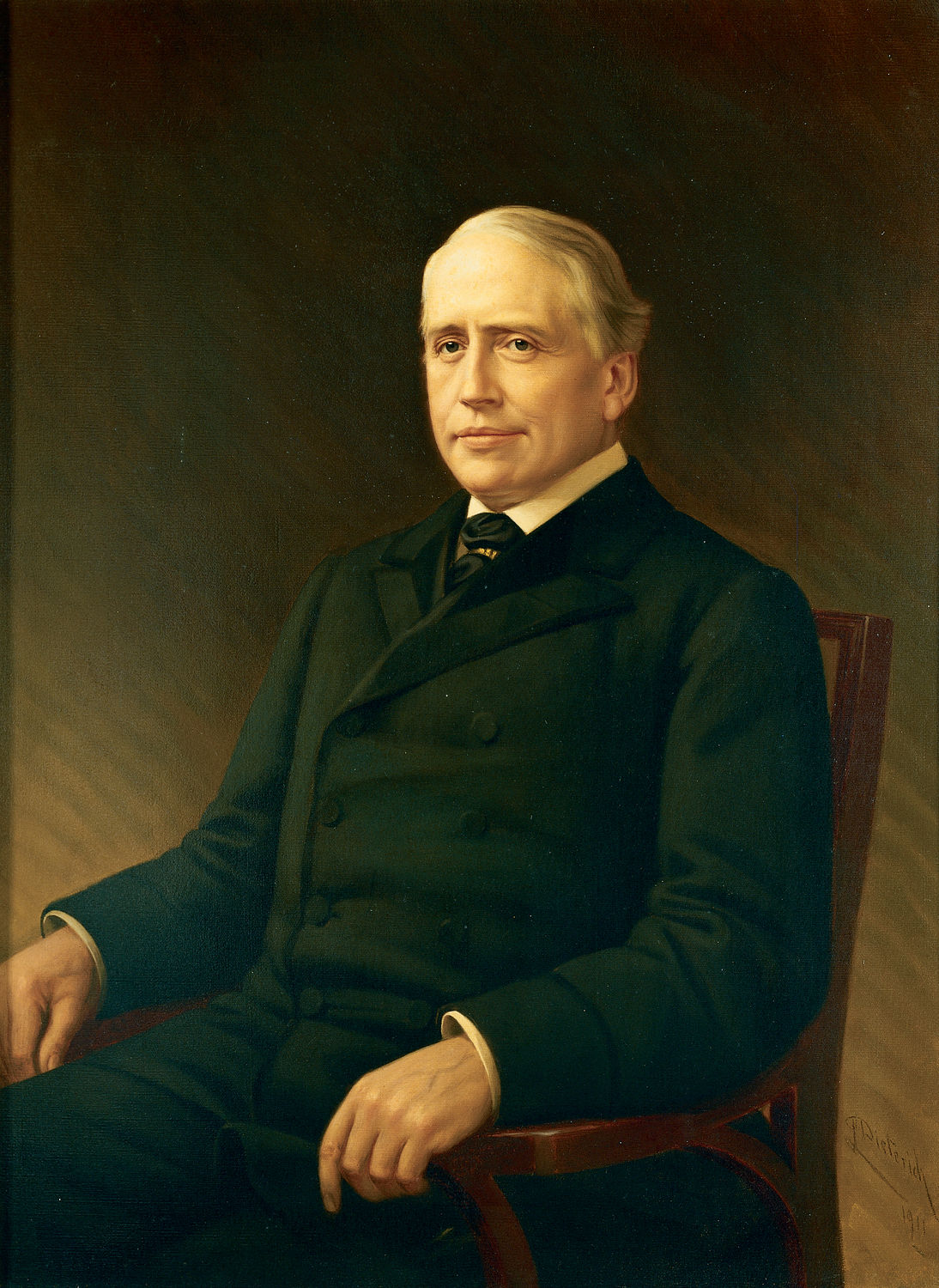
| Title | Arthur P. Gorman |
| Artist/Maker | Louis P. Dieterich ( 1841/1842 ca. - 1922 ) |
| Date | 1911 |
| Medium | Oil on canvas |
| Dimensions | Sight: h. 45.5 x w. 33.375 in. (h. 115.57 x w. 84.7725 cm)
Framed: h. 55.75 x w. 43.5 in. (h. 141.605 x w. 110.49 cm) |
| Credit Line | U.S. Senate Collection |
| Accession Number | 32.00019.000 |
Louis Dieterich’s portrait of Arthur Pue Gorman was presented to the Senate by Gorman’s family in 1943. At a dedication ceremony in the Capitol that year, the oil painting was unveiled by Arthur Gorman Lambert, the senator’s grandson. Senator George Radcliffe of Maryland introduced the resolution directing the acceptance of the portrait and acted as master of ceremonies, while Majority Leader Alben Barkley accepted the portrait for the Joint Committee on the Library.
Born in Germany, Dieterich moved with his family to Baltimore as a youth. Although he was primarily self-taught, he also studied at the Maryland Institute of Art, where he later became an instructor. Dieterich maintained a studio in Baltimore for many years. Before executing the Senate’s portrait, the artist completed two earlier paintings of Gorman that are in the collections of the Maryland State Archives and the Maryland Historical Society.
Identified with the U.S. Senate through much of his life, Arthur Pue Gorman began his career as a page in the House of Representatives in 1852 and later transferred to the same post in the Senate through the influence of Stephen A. Douglas. He went on to hold a series of staff positions in the Senate, eventually becoming Senate postmaster. In 1866, because of his support of the unpopular President Andrew Johnson, he lost the postmastership. Gorman, born in Woodstock, Maryland, returned to his home state, where he held appointive and elective positions, becoming a leader in the state Democratic Party and a member of the state legislature.
Elected to the U.S. Senate from Maryland in 1880, Gorman chaired the Democratic National Committee in 1884 and directed Grover Cleveland's successful presidential campaign. Gorman later opposed the president's tariff policy, provoking Cleveland's enmity. During his long Senate career, Gorman was considered an outstanding party leader; he served as chairman of the Democratic caucus in both the majority and minority in an era before formal floor leaders. Although his 1898 reelection bid was unsuccessful, Gorman returned to the Senate in 1903. He again chaired his party's caucus, a position he held until his death in 1906.